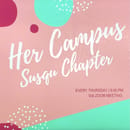During winter break, I attempted to be as productive as possible. And here I am, able to do any review that I want: a film, TV show, or even maybe my new iPhone 11. However, as meaningful a review of a phone would be to everyone, I am sure the ones on YouTube are better. As for anything else, I decided to read some more books with a different narrative that I never considered reading until my Introduction to Modern Publishing class posed the question: what kind of book would you publish?
When I was growing up, I noticed the minimal number of books with the main character being a person of color. If memory serves me right, the only books I could find about my culture in the children’s section were about the Chinese New Year, but most of them were non-fiction. Although, I believe I did find a couple other books, they were either tales or non-fiction, not slice of life stories with an Asian character. While I mentioned that in my class in a half-jokingly matter, it sparked an interest in me to try reading more books under a more familiar perspective.
To start, I chose Fresh Off the Boat: A Memoir by Eddie Huang. Before I continue, I have to note that I never watched the television show. To be fair, the show trails away from the actual memoir. However, from the clips I have seen so far, there are aspects I could relate to in my own life, minus the exaggeration of the scene.
I would not recommend this memoir for the faint-hearted but rather for the more open-minded individuals. Huang proved to be a radical character right from the start where I realized the language that he uses is profane and nevertheless, blunt. While some of the statements he makes can prove to be controversial, my words do not do justice to the words and lessons I learned from Huang.
Let’s start with the word: FOB (Fresh off the boat). It is actually a term that means immigrant. While this book is not about the life of a Chinese immigrant, it was about a first generation American whose parents are immigrants. From there, I was able to relate to some of his struggles with finding a place to belong. As a child of immigrants, I was not born in America. Instead, I was born into a duality of cultures whose values can conflict with each other. There was my American side that is more liberating and my Chinese side, which emphasizes family and more traditional values. There were expectations for both sides, and I found it stressful to live up to any of them.
Throughout his memoir, Huang taught his readers about how we must find our own meaning to our lives. Seems self-explanatory and cliché, but he makes a good point. We just need to choose the life that is best for us. However, I learned that my Chinese culture is something I do not need to hide in order to fit in. Instead, I should embrace it despite the many times that is becomes an element of stress. I never fit in any of the sides; I was either too much or too little of one side or the other (and that sentence is as confusing as me trying to figure out what I wanted for myself). There is always that model minority stereotype that follows me around. I am glad I did not get the racial slurs that Huang heard, but it made me super uncomfortable to think that there are people who think of people like me as an alien despite the fact that we were born here. I am grateful that Huang taught me to stand up for myself and what I believe in because the people who understand you will come to you. I cannot keep changing myself to fit someone else’s mold. However, that does not mean I should get into the fights that Huang got himself in trouble with various times in his life.
His book made me see different aspects of my life in a different way. Now that I am in college, there are many choices I am making for myself. I joined the Asian Cultural Association because I was in a similar club throughout high school, and I just thought it would be good to have a continuation of that. But his memoir struck a good point. Is the club doing enough? Are we able to make a change with what we do? In his memoir, Huang had criticized these kinds of clubs because they were not making the impact he wanted to see. Of course, I kind of started noticing that especially as an officer of one. However, the one impact he might not have regarded is one that meant a lot to me: community. Sure, we could be advocating for better representation, but after our recent Lunar New Year event, I felt the club’s significance. It brought people together, and it celebrated the Asian culture in a respectful manner. That is all that mattered.
Not only that, but college is probably one of the very few times someone can start their life over. Have I done so? Absolutely not, but the effort was made somewhere at some point. Maybe I am just content with my life and how I can represent two different cultures even if I faced criticism from both for not being enough. Yet, here I am. I am enough. This brings me to my last point. In Fresh Off the Boat: A Memoir, Huang teaches an important lesson through cooking. His father owned a restaurant that did not serve Asian cuisine. However, his father still used a family technique for his book. Lesson being, there is no one way of living your life. If you’re like me and you’re within that conflict of having to choose between two different cultures, stop yourself. There is always a way to do both, and as long as you do what you love, is that not what matters the most?
On that note, happy Lunar New Year!



